(i)Policy and Administrative Rules
Catalogue of Related Laws
Foreign Trade Law of the People's Republic of China
Customs Law of the People's Republic of China
Law of the People's Republic of China on Import and Export Commodity Inspection
Law of the People's Republic of China on Chinese-Foreign Equity Joint Ventures
Law of the People's Republic of China on Chinese-Foreign Contractual Joint Ventures
Law of the People's Republic of China on Foreign-Capital Enterprises
Company Law of the People's Republic of China
Law of the People's Republic of China on the Entry and Exit Animal and Plant Quarantine
Law of the People's Republic of China on Control of the Entry and Exit of Aliens
Law of the People's Republic of China on the Control of the Exit and Entry of Citizens
Securities Law of the People's Republic of China
Income Tax Law of the People's Republic of China for Enterprises with Foreign Investment and Foreign Enterprises
Individual Income Tax Law of the People's Republic of China
Law of the People's Republic of China on the Administration of Tax Collection
Environmental Protection Law of the People's Republic of China
Law of the People's Republic of China on Evaluation of Environmental Effects
Law of the People's Republic of China on Promotion of Cleaner Production
Law of the People's Republic of China on Prevention and Control of Desertification
Marine Environment Protection Law of the People's Republic of China
Law of the People's Republic of China on the Prevention and Control of Atmospheric Pollution
Law of the People's Republic of China on Prevention and Control of Environmental Pollution by Solid Waste
Law of the People's Republic of China on Prevention and Control of Water Pollution
Law of the People's Republic of China on Prevention and Control of Environmental Noise Pollution
Law of the People's Republic of China on Prevention and Control of Radioactive Pollution
Frontier Health and Quarantine Law of the People's Republic of China
Labor Law of the People's Republic of China
Trade Union Law of the People's Republic of China
Searching Website for the Related Laws
1. Searching System of Laws and Regulations of China (website of National People's Congress of China)
http://law.npc.gov.cn:87/home/begin1.cbs
2. China Legislative Information Network System
http://www.chinalaw.gov.cn/jsp/jalor/index.jsp
3. Ministry of Commerce
http://www.mofcom.gov.cn
The above-mentioned websites are for reference only.
Regulations and Measures for Environment Preservation
It is stipulated in the Regulations of Xinjiang Uygur Autonomous Region on Environment Protection that governments at different levels shall, taking into consideration of local natural resources reserves and ecological environment, and in accordance with the policy of attaching equal importance to exploitation, conservation and adding value, formulate policies concerning economic development, safeguard the stability and sound circle of ecological system, protect and improve environment.
So long as exploitation of natural resources is concerned, we must adhere to the principle that he who exploits shall conserve, he who damages environment shall be responsible for restoration and he who exploits resources shall provide compensation.
Agricultural environment protection shall be strengthened. Ecological agriculture shall be developed and cultivated land be conserved. Techniques for comprehensive prevention and control of damage by disease, insect and mouse will be spread. We will provide scientific management of the application of chemical fertilizer, agriculture chemicals, agricultural film and plant growth regulator and prevent the pollution of soil, agricultural products, desertification, stalinization and impoverishment of soil. Waters and water quality shall be protected and improved. It is prohibited to dump wastes into or discharge oil, acid liquor, alkaline liquor and virulent waste liquid to rivers, lakes, reservoirs and other waters.
In the Grade I protection zone for potable water source, it is prohibited to construct production facilities that cause pollution or to conduct other activities that cause pollution to source of potable water.
Pollution of underground water shall be prevented. It is prohibited to discharge toxic and pollutant waste water, sewage containing pathogen as well as other wastes by overflow, sink hole or any other way that may cause pollution to underground waters.
Industrial production facilities polluting environment may not be built in natural reserves, places of scenic interests, cultural relics reserves, living communities and other areas that need special protection. If other facilities are to be constructed in these areas, the pollutants discharged may not be higher relevant standards concerning discharge of pollutants.
Environment impact assessment must be conducted for development projects that have impact on environment. The developers shall submit reports on environment impact to administrative departments of environment protection for examination and approval. Only after approval can the development projects be launched.
Catalog of Encouraged Foreign Investment Industries in Xinjiang (See Xinjiang Investment Promotion Net)
1. growing and fine-processing of quality tomato and meddler
2. industries following up national key ecological projects such as returning cultivated land to forest and grassland, and the conservation of natural forest
3. development and application of water-saving irrigation technology
4. beet sugar production and comprehensive utilization of byproducts
5. growing and processing of natural perfume and edible fungus
6. construction of base of quality winemaking grape and making of fine grape wine
7. fine processing of cotton seed, sunflower seed and safflower oil
8. growing of flax and production of flax products
9. upgrading of high class cotton and wool products
10. exploration and exploitation of nonferrous mines such as copper, lead, zinc and nickel
11. multi-purpose development of nonmetal minerals such as vermiculite, nitratine, mica, asbestos and bentonite
12. development of technology for processing coal and production of coal products
13. manufacturing of high class leather products
14. development of end product of ethene and development of fine chemical products
15. production and development of end products of natural gas
1 6. growing and processing of Uygur medicines and development of new technology of pharmacy
17. development of bio-drug with internal organs of cattle as raw materials
18. production of goods, artistic articles, materials of packing container and glass articles of daily use for local ethnic minorities
19. construction and management of urban gas and heat supply pipes, water supply and drainage pipes (holding by Chinese side in large and medium-sized cities)
20. development, conservation and management of scenic areas (spots)
21. Highway passenger transport
Relations concerning Import and Export
Unitary policy of China is implemented for foreign trade of Xinjiang. Border trade with neighboring countries is regulated in accordance with border trade policy of the country. Based on the realities of China's border trade and by reference to international practices, China regulates border trade in the following two ways.
Mutual trade between border inhabitants, which means that residents of the border areas trade goods in amount not more than the ceiling prescribed by the government and at fairs designated by the government within 20 km from the borderline. Goods imported by residents through this form of trade shall be exempted from import duty and import linkage tax if the trade volume of every trader is not more than RMB 3,000 yuan a day; import duty and import linkage tax shall be levied on the business volume above the ceiling of 3,000 yuan if the trade volume of every trade is more than RMB 3,000 yuan a day.
Border trade, which refers to trading activities between enterprises entitled to border trade in border counties (Banner, an administrative area at the county level) and cities along the land border approved by the State and enterprises and other trade institutions in border areas of the neighboring countries.
Foreign Exchange Control
Foreign exchange in the border trade of Xinjiang with neighboring countries is administrated in accordance with Measures for the Administration of Foreign Exchange in Border Trade. Border trade enterprises may open border trade account with banks in the border areas of China and the border trade account can be settled in currencies of the neighboring countries. Trade institutions abroad may, with banks in the border areas of China, open current foreign exchange account and border trade account in currencies of the neighboring countries. For current foreign exchange account, border trade account in currencies of neighboring countries and special RMB account for border trade opened by trade institutions abroad with banks in Chinese border areas, declaration formalities shall, in accordance with relations of China concerning foreign exchange control, be gone through for receipts and payments related to foreign trade transactions conducted outside China. In Chinese border areas where RMB accounts are settled in large amount, trade institutions may, with banks in Chinese border areas, special RMB account for border trade.
Earnings made by border trade enterprises in convertible currencies, if the amount is under the ceiling prescribed by the Foreign Exchange Administration for current foreign exchange account, may be settled or kept under current foreign exchange account; if the amount is above the ceiling, the earnings shall be settled in accordance with relevant regulations.
(ii)Procedures for Establishing Enterprise
Conditions for establishing enterprise
Foreign companies, enterprises, other economic organizations and individuals may make investment in running enterprises and other projects in Xinjiang Uygur Autonomous Region.
Application procedures
Required Procedures for Foreign Investment Projects
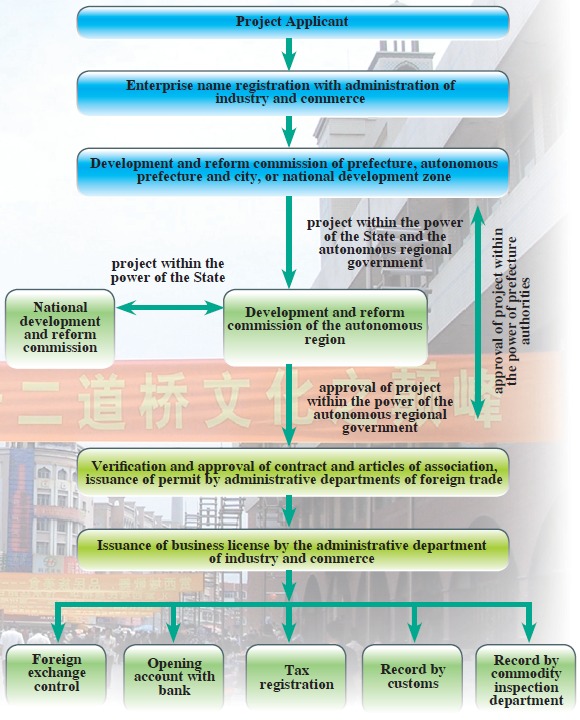
Relevant Laws
The establishment of foreign-funded enterprises shall be governed by Law of the People's Republic of China on Chinese-foreign Joint Ventures, Law of the People's Republic of China on Chinese-foreign Contractual Joint Ventures and Law of the People's Republic of China on Foreign-Capital Enterprises.
Regulations concerning employment
According to Labor Law of the People's Republic of China and Regulations on Labor Management of Enterprises with Foreign Investment, enterprises with foreign investment may, in accordance with needs of production and operation, decide the setup and staff size, and recruit employees on their own. Enterprises with foreign investment may employ human resources through multiple channels. For instance, they may entrust intermediate institutions recognized by local labor department with recruitment, or they may recruit employees through talents fairs, or carry want ads through mass media. If foreign-funded enterprises recruit employees in China, the foreign-funded enterprises and employees shall sign labor contracts in accordance with laws and regulations of China. In the labor contract, relevant matters shall be clearly stipulated, such as employment, dismission, wages, welfare, labor protection and labor insurance. Enterprises with foreign investment may not employ child laborer. Enterprises with foreign investment shall be responsible for training of employees and set up examination system so that employees meet needs of production and development of enterprises.
(iii)Living Environment
Regulations on Entry and Exit
For entry into China, aliens shall apply for visas from Chinese diplomatic missions, consular offices or other resident agencies abroad authorized by the Ministry of Foreign Affairs. Aliens holding letters or telegrams from authorized organizations in China and ordinary passports issued by countries that have diplomatic of official trade contact with China may apply for visas to port
visa agencies authorized by the Ministry of Public Security in cases of an urgent need to travel to China and a lack of time to apply for visas to the above-mentioned Chinese agencies abroad, for the following reasons: (1) being invited at short notice by the Chinese side to attend a trade fair in
China; (2) being invited to China to enter a bid or to formally sign an economic or trade contract; (3)coming to China under contract for supervision over export shipment, import commodity inspection or checked on the completion of a contract; (4)being invited to install equipment or make rush repairs; (5)coming to China at the request of the Chinese side for settling claims; (6)being invited to China for providing scientific and technological consulting service.
Transit visas are not required for those aliens who are in immediate transit through China on continued international flight, who hold connecting flight tickets and have seat booked and who stay for not more than 24 hours within the airport of the in-transit city. Aliens wishing to leave the airport shall apply to the border check-posts for stopover permits.
For exit, aliens shall submit for examination their valid passports or other valid certificates as well as visas or residence certificates permitting their stay in China.
Work and Residence Permits
The employer shall apply for the employment permission if it intends to employ foreigners and may do so after obtaining approval and The People's Republic of China Employment License for Foreigners. Foreigners seeking employment in Xinjiang shall hold the Employment Visas for their entry(In case of agreement for mutual exemption of visas,the agreement shall prevail), and may work within Xinjiang only after they obtain the Employment Permit for Foreigner, and the foreigner residence certificate Foreigners who have not been issued residence certificate (i.e. holders of F, L, C or G-types visas),and those who are under study or interim programs in China and the families of holders of Employment Visas shall not work in Xinjiang.
Foreigners may be exempted from the Employment License and Employment permit when they meet any of the following conditions:(1)foreign professional technical and managerial personnel employed directly by the Chinese government or those with senior technical titles or credentials of special skills recognized by their home or international technical authorities or professional associations to be employed by Chinese government organs and institutions and foreigners holding Foreign Expert Certificate issued by China's Bureau of Foreign Expert Affairs;(2) foreigners who conduct commercialized entertaining performance with the approval of the Ministry of Culture and hold "permit for Temporary Commercialized Performance".
Foreigners may be exempted from the Employment License and may apply directly for the Employment Permit by presenting their Employment Visas and relevant papers after their entry when they meet any of the following conditions: (1) foreigners employed in China under agreements or accords entered into by the Chinese government with foreign governments or international organizations for the implementation of Sino-foreign projects of cooperation and exchange;(2) chief representatives and representatives of the permanent offices of foreign enterprises in China.
Any foreigners seeking employment in Xinjiang shall meet the following conditions: (1)18 years of age or older and in good health; (2) with professional skills and job experience required for the work of intended employment; (3)with no criminal record; (4) a clearly-defined employer; (5)with valid passport or other international travel document in lieu of the passport.
The public security organ may issue certificates of long-term residence status valid for one to five years to aliens who, in compliance with Chinese laws, find it necessary to establish prolonged residence in Xinjiang for the purpose of investing in Xinjiang or engaging in cooperative projects with Xinjiang enterprises or institutions in the economic, scientific, technological and cultural fields, or for other purposes and may issue certificates of permanent residence status to those with meritorious performance.
Aliens residing permanently in Xinjiang shall, once every year and at a prescribed time, submit their residence cards for examination to the pubic security bureau at their place of residence.
Urban Living Environment
There are 22 cities and 68 county towns in Xinjiang. Major cities include Urumqi, Karamay, Shihezi, Yining, Kashgar and Turpan. The city of Urumqi is the capital of Xinjiang Uygur Autonomous Region. Good living environment exists in Xinjiang where the urbanization rate reached 37.2% and forest cover rate 2.94%, the urban population density was 230 persons per sq .km, the gas penetration rate in cities stood at 89.3%, the green area of per 10,000 people covered 43.1 hectares at the end of 2005. Every year, 3.44 million tons of home refuse is collected. 18 home sewage plants were built, with daily treatment capacity reaching 1.327 million cubic meters. Air quality in Xinjiang has been improved, and the number of days when urban air quality is above Grade II accounts for 73.9% of a year.
Education and Health Care
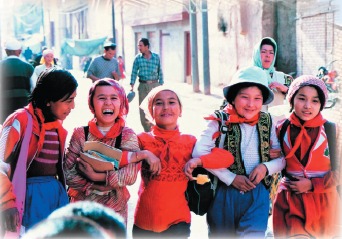
The undertaking of education develops steadily. There are 7426 schools of different types and at different levels, with a student population of 4.055 million, 59.6% of which are members of ethnic minorities. 262,000 full-time teachers work for these schools. 1516 hospitals have been built in Xinjiang. 39.7 sick beds are provided for every 10,000 people. 117,000 medical personnel work in the health care sector of Xinjiang. Complete public health regime has been built, and disease prevention and control centers are part of the regime.
Driver's License
In accordance with Road Traffic Safety Law of People's Republic of China and Rules Governing Application and Use of Motor Vehicle Driver's License, traffic administration department under public security organ shall, on the principle of diplomatic reciprocity, issue motor vehicle driver's license to personnel of foreign embassies and consulates, and personnel of representative agencies of international organizations if they apply for motor vehicle driver's license. Aliens who apply for motor vehicle driver's license shall apply to traffic administration authorities in the residing place. Holders of foreign driver's license, if applying for motor vehicle driver's license, shall fill Application Form of Motor Vehicle Driver's License and submit the following certificates: (1) identification certificate of the applicant; (2) health certificate issued by medical institution at or above county level; (3) motor vehicle driver's license held by the applicant. If the driver's license held by the applicant is in a non-Chinese language, the applicant shall present the Chinese version text.
Personnel of foreign embassies and consulates, and personnel of representative agencies of international organizations, if holding foreign driver's licenses, shall fill Application Form of Motor Vehicle Driver's License and submit the following certificates: (1) identification certificate of the applicant; (2) motor vehicle driver's license held by the applicant. If the driver's license held by the applicant is in a non-Chinese language, the applicant shall present the Chinese version text. Holders of foreign driver's license, if applying for motor vehicle driver's license, shall take Test Subject I. Those who apply for driver's license for large-sized bus, towing vehicle, medium-sized bus and large sized truck shall take Test Subject III. Aliens who temporarily entering China drive motor vehicles shall apply for temporary driving license of People's Republic of China to vehicle administration departments of public security organs of the place of entry or the place of departure.
(iv)Reference Prices of Basic Elements
Water Prices in Major Cities in Xinjiang
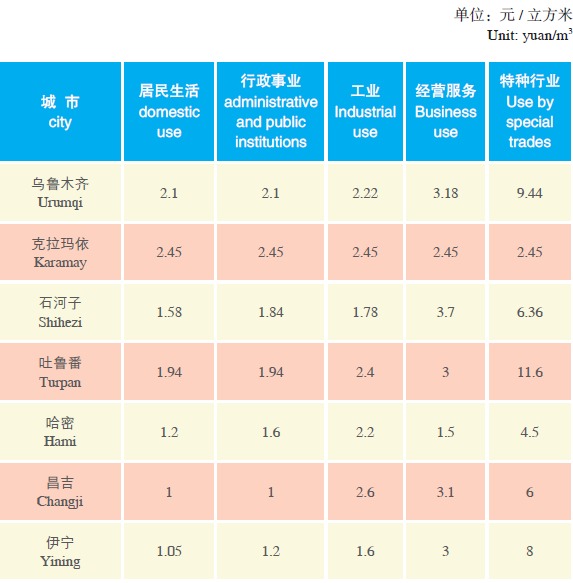
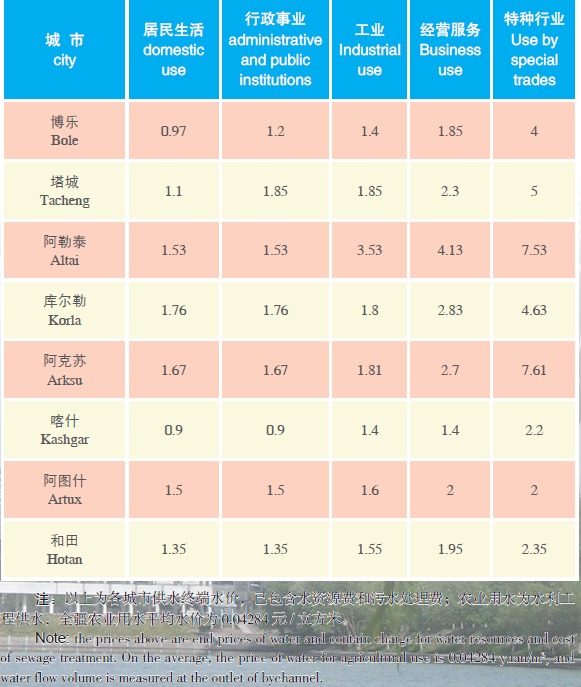
Electricity Prices in Xinjiang
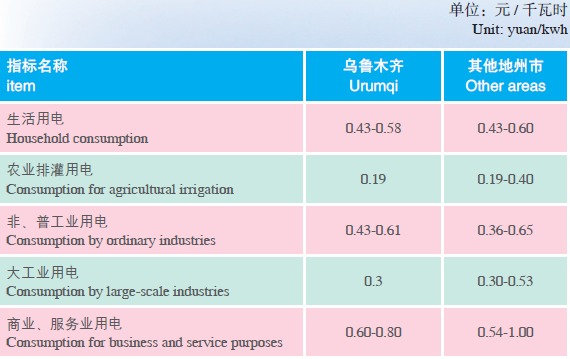
Price of Labor Power in Xinjiang
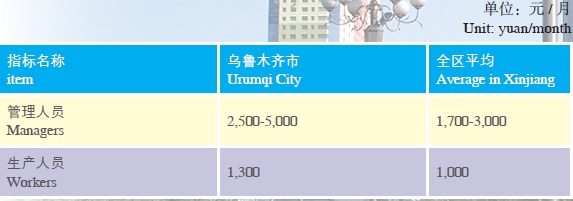
Land Rent in Xinjiang
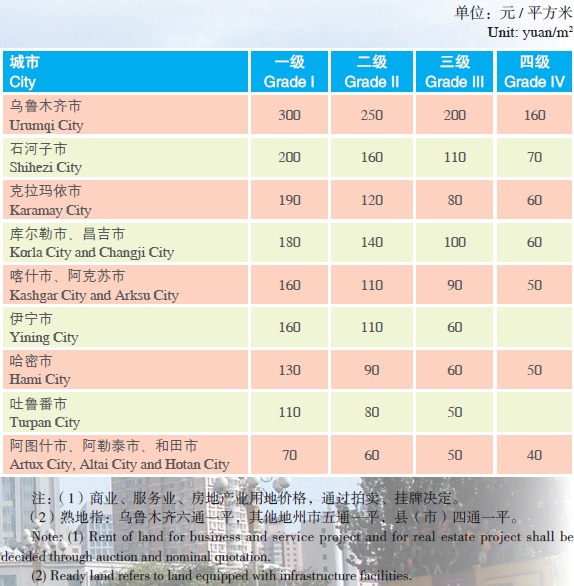
Price of Telecommunication Service in Xinjiang
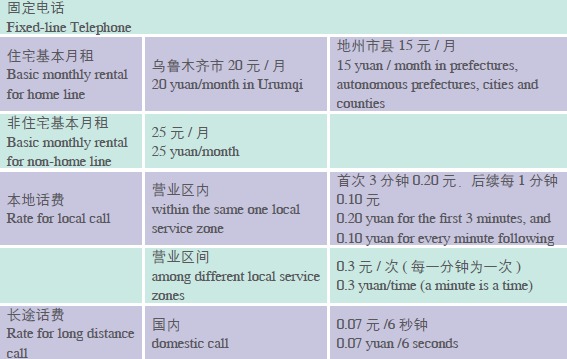
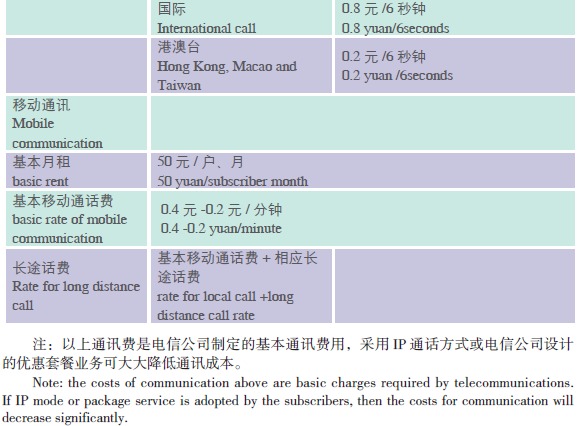
Coal Price in Xinjiang
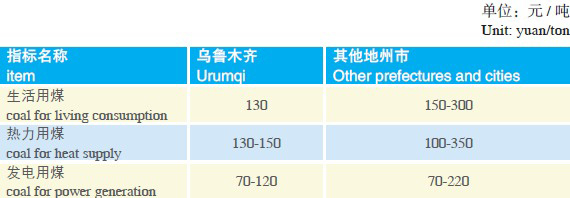
Price of Heat Supply in Xinjiang

Natural Gas Price in Xinjiang
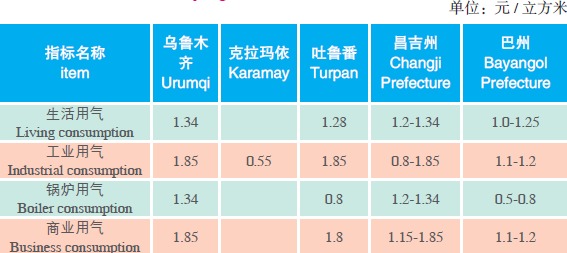
Costs on Registration with Administration of Industry and Commerce
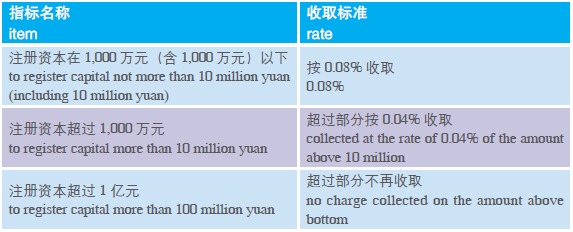
Cost of Capital Construction
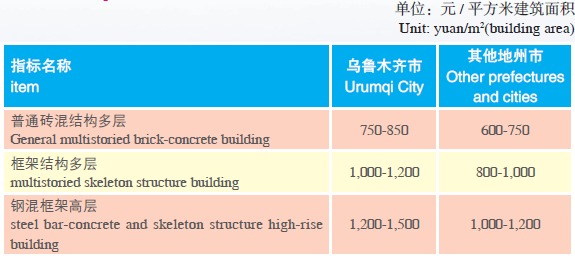
Transportation Service Price

Related Articles:
Doing Business in Xinjiang Uygur Autonomous Region of China: Survey
Doing Business in Xinjiang Uygur Autonomous Region of China: Economy
Doing Business in Xinjiang Uygur Autonomous Region of China: Development Zones





